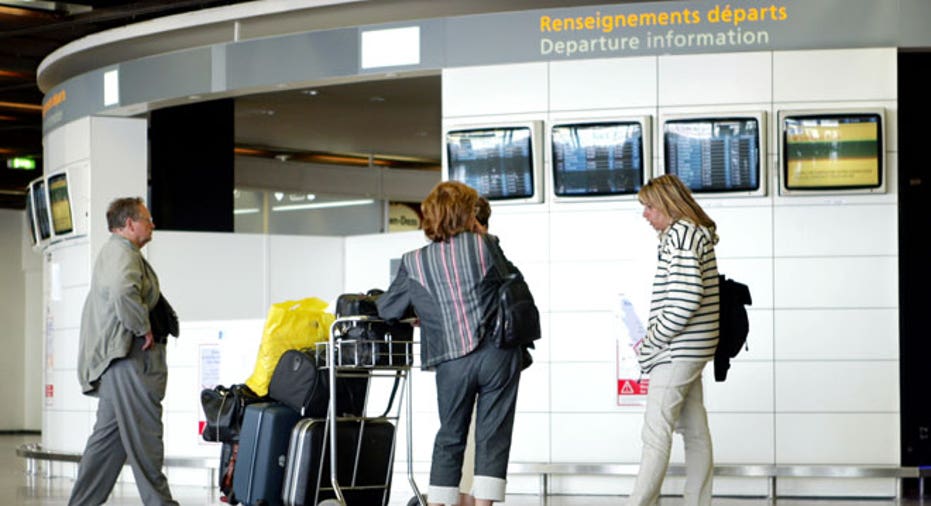Say Hello to Higher Airline Ticket Fees Next Month

Summer travelers won’t be happy to hear this news: come July, airline tickets will be more expensive. Fliers with long layovers could face even higher prices.
But they can’t blame the airlines for the increase.
Transportation Security Administration fees, which are added to ticket prices, are set to rise. In December’s budget negotiations, Congress agreed to raise the fees, which are estimated to raise $12.6 billion in the next 10 years.
The agreement raised the fees to a flat rate of $5.60 added to each leg of a trip from $2.50 for a nonstop flight, or $5 for a trip with a layover.
The TSA is looking to charge an extra $5.60 fee for each leg of the flight where there is a connection of more than four hours.
Ross Feinstein, press secretary for the TSA, told FOXBusiness.com in a statement, it is submitting definitions of flights and layovers to the Federal Registered in accordance with the budget agreement.
“As required by the Bipartisan Budget Act of 2013, TSA has submitted an interim final rule to the Federal Register to restructure the September 11th Security Fee. In accordance with Federal Law, the revenue generated from the security fee will be deposited in the general fund of the Treasury. The revenue is to be used to offset TSA costs for providing civil aviation security services, after stipulated amounts are applied to reduction of the Federal deficit,” Feinstein says.
The rule will be published Friday, and will kick in 30 days later.
Steve Loucks, spokesperson for Travel Leaders, a nationwide travel agency, calls the move “airway robbery.”
“They should follow the spirit of the law that was passed by Congress. This hurts fliers who have to endure long layovers through no fault of their own.”
He says there are times where fliers can’t avoid layovers, and that it’s the airliners that are set to take the image hit. “Consumers will start seeing increases in their airline tickets, and when airlines have to disclose what the price is, consumers don’t see what the individual taxes are,” he says. “Consumers will think airlines are the ones raising the prices.”
He says it’s unlikely the TSA will roll these fees back, and consumers should reach out to their members of Congress to urge a change.
“They have to hold the TSA accountable to changing what the intent of the law is,” he says. “They can also work to minimize their connecting time.”
U.S. Travel Association President and CEO Roger Dow issued a statement Thursday acknowledging aviation security is a concern, but expressing disappointment over the hike.
"Clearly there needs to be adequate funding for aviation security, but the last adjustment to the fee that funds TSA activities was very disappointing. In the budget agreement for the current fiscal year, the fee was raised knowing that a significant portion would be used to fund unrelated projects by Congress, instead of using all of the new revenue to pay for improved security activities,” Dow says. “Not only did the fee increase, but now, if passengers have layovers of longer than four hours, they are charged the entire fee again. “
The TSA will be collecting public comment on the rule for 60 days following the publication in the Federal Register, and will be addressed in a final rule to come.



















